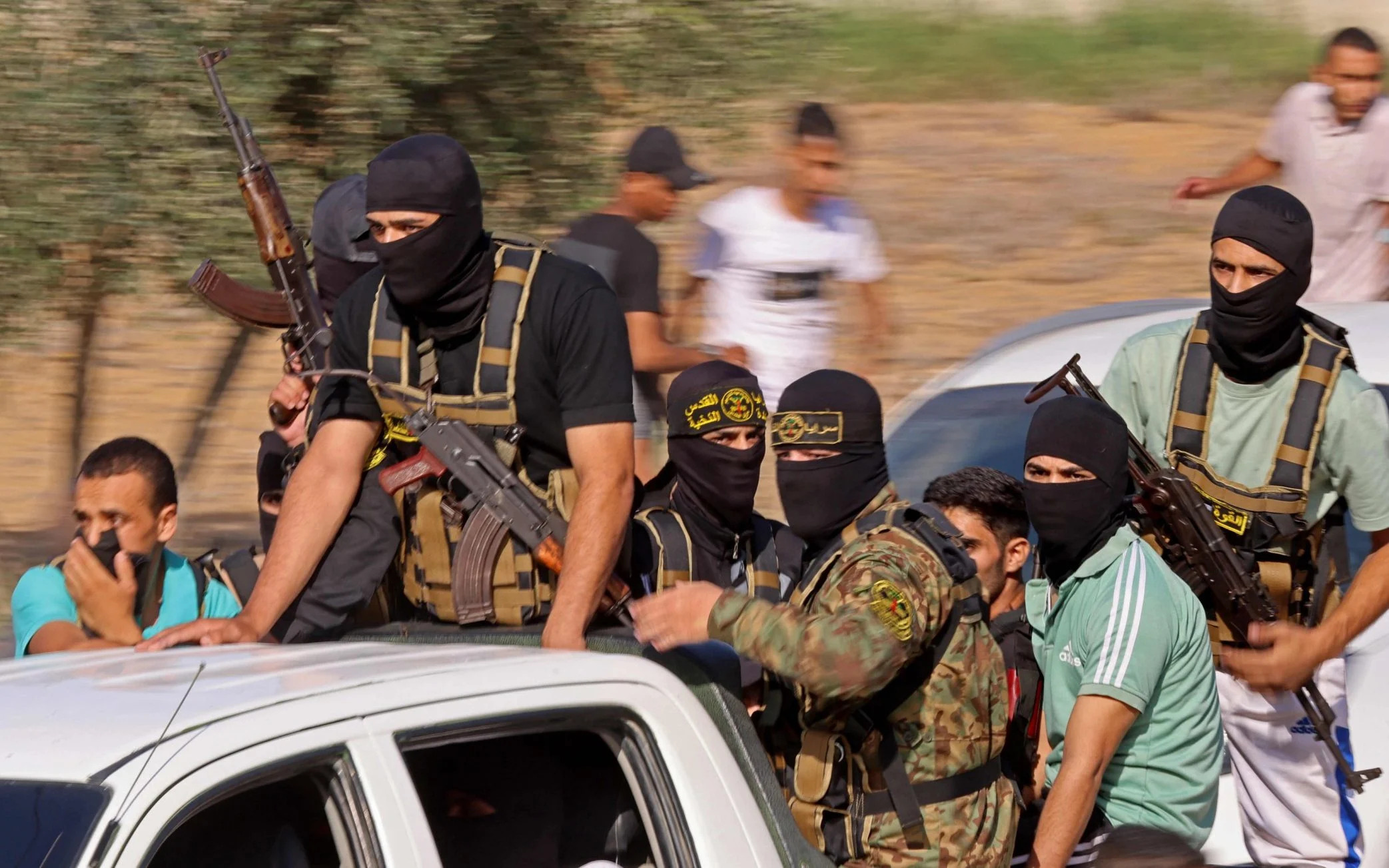Who are Hamas and why are they attacking Israel now?

Israel has declared war against Hamas after an unprecedented large-scale attack by the Palestinian militant group on Saturday that saw gunmen storm communities near the border with the Gaza Strip, killing hundreds of Israelis and taking hostages.
The onslaught caught Israel’s security forces off guard, and the country has since retaliated with airstrikes that have left hundreds of Palestinians in densely-packed Gaza dead.
As the crisis escalates, here’s what you need to know about Hamas and the latest round of violence.
Who are Hamas?
Hamas, a Palestinian Islamist militant group, was founded in 1987 by an imam, Sheikh Ahmed Yassin, during the First Intifada, or uprising, of Palestinians against Israeli military control of the West Bank and Gaza Strip. Yassin, a quadriplegic who was nearly blind, was killed in 2004 in Gaza City by a missile fired from an Israeli helicopter gunship.
The movement started as an offshoot of the Muslim Brotherhood in Egypt and created a military wing. Its name stands for Islamic Resistance Movement and in Arabic means “zeal”.
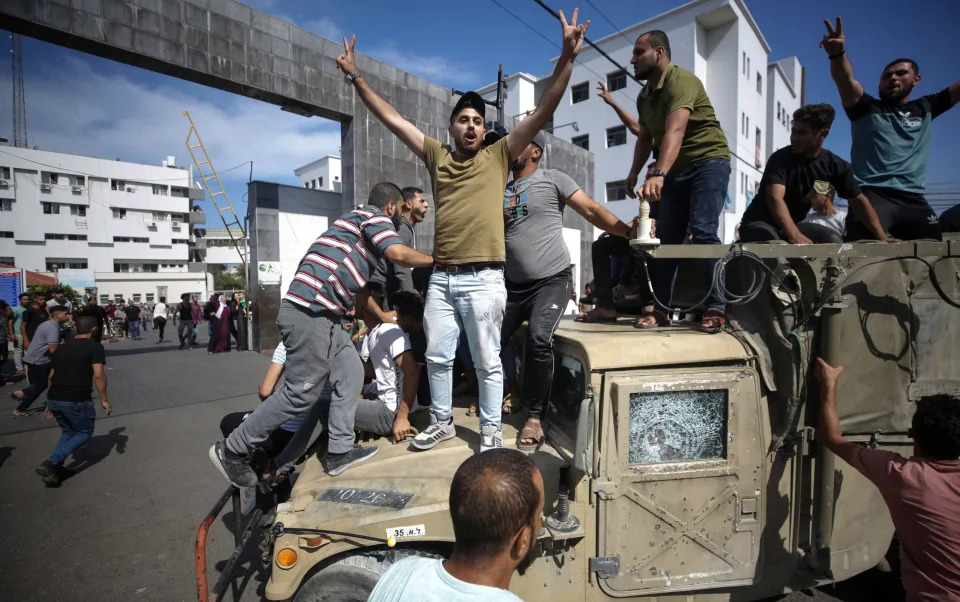
It took power in Gaza in 2007 and has fought several wars with Israel since. It has fired thousands of rockets at Israel and carried out suicide attacks against Israeli citizens, as well as kidnappings of its soldiers.
Israel has meanwhile targeted Hamas with air strikes and blockaded the Gaza Strip for the past 16 years, citing security concerns.
The UK, US, European Union, Canada, Japan, Australia and Israel have designated Hamas as a terrorist organisation, while some nations, including New Zealand, have assigned this status to its military wing. Others, such as Brazil, China, Russia, Norway and Turkey, do not consider it a terrorist group.
What do Hamas want from Israel?
Unlike the Palestine Liberation Organisation, led by Mahmoud Abbas, Hamas is sworn to Israel’s destruction and does not recognise Israel’s statehood. Its goal is the restitution of Palestine as an Islamic state.
Although it has previously outright rejected a two-state solution – which would allow Israel and the Palestinian people to live side by side with mutual recognition – in 2017, it was reported that it had reworked its charter to accept the formation of a Palestinian state along the 1967 borders.
That refers to the borders that existed before a war in which Israel took over East Jerusalem, the West Bank and Gaza Strip.
The move to amend its charter was viewed with suspicion by opponents, who accused Hamas of trying to appear acceptable to the international community.
The new document claimed Jerusalem as its capital and called for the return of refugees to their homes. It said Hamas did not relinquish its goal of “liberating all of Palestine”.
Who supports Hamas and who funds them?
The group is backed by Iran, which provides funding, weapons, technology and training, and it is allied with Hizbollah, the Shiite Islamist group in Lebanon, and Syria, who oppose US policies in the Middle East.
Several Middle Eastern nations have supported Hamas’s actions.
“We congratulate the Palestinian fighters,” Yahya Rahim Safavi, a senior Iranian government adviser was quoted as saying by state media. “We will stand by the Palestinian fighters until the liberation of Palestine and Jerusalem.”
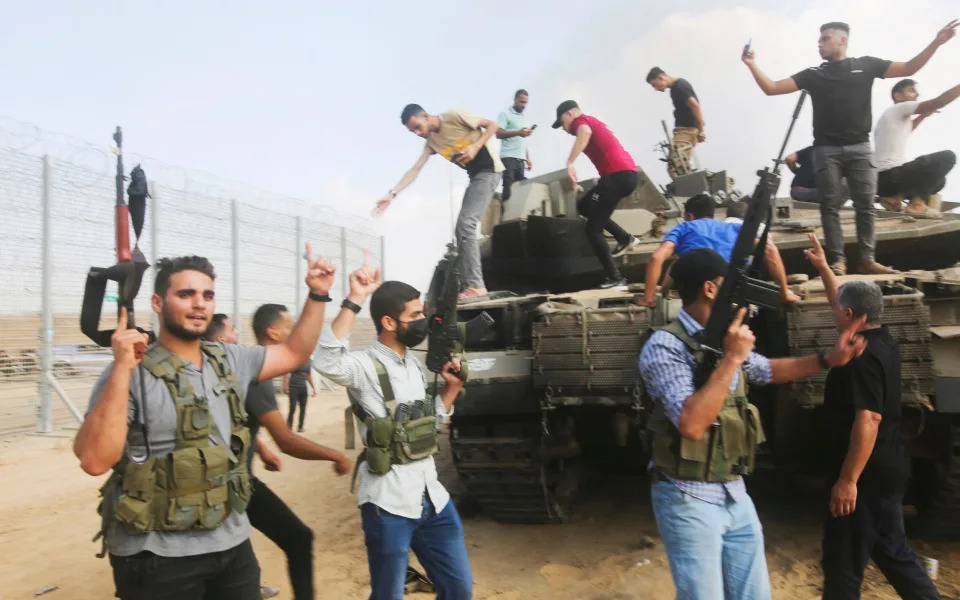
The Qatari ministry of foreign affairs said it held “Israel alone responsible for the current escalation due to ongoing violations of the rights of the Palestinian people, the latest of which is the repeated raids on the blessed Al-Aqsa Mosque under of the protection of Israeli police,” referring to violence that erupted in April when Israeli police raided the mosque and arrested dozens of worshippers.
Ismail Haniyeh, Hamas’s top political leader, was seen celebrating the attack from his base in the Qatari capital, Doha. Qatar denies supporting Hamas and says the group is simply part of the reality on the ground.
The Iraqi prime minister’s media office said the operations carried out by the Palestinian people were “a natural result of the systematic oppression they have been subjected to for many years at the hands of the Zionist occupation authority” and Syria also issued a statement of support for the Hamas attacks.
Lebanese Hizbollah congratulated Hamas on the “large-scale, heroic operation” into Israel.
What happened in the attack?
Around 6.30am on Saturday morning, Israel was woken by an unprecedented, surprise attack that started with a barrage of rockets fired from the Gaza Strip. The Israel Defence Forces (IDF) said around 2,000 rockets were fired, while Hamas claimed 5,000 had been used.
Hamas militants breached Israel’s borders, infiltrating the country by land, sea, and air, with some using paragliders.
They broke through a highly fortified separation fence and attacked a defence compound near the border, before terrorising local communities as far as 15 miles from the Gaza frontier, killing hundreds and seizing at least 100 hostages, including young children.
In one of the most horrific assaults, more than 260 people were killed as gunmen opened fire during the Supernova music festival that was being held in the southern Negev desert to coincide with the Jewish festival of Sukkot. Witnesses said militants appeared out of nowhere and sprayed festival goers with bullets as they ran.
More than 1,300 people have now died in the escalating conflict, with more than 800 Israelis killed during the Hamas attack, and more than 550 Palestinians in Israeli airstrikes fired at Gaza in retaliation.
Why did Hamas attack Israel now?
Khaled Qadomi, a Hamas spokesman, told Al Jazeera that the group carried out its operation in response to atrocities that Palestinians had faced over decades.
“We want the international community to stop atrocities in Gaza against Palestinian people, our holy sites like Al-Aqsa [Mosque]. All these things are the reason behind starting this battle,” he said.
Saturday’s assault follows a particularly intense period of clashes in recent months and years.
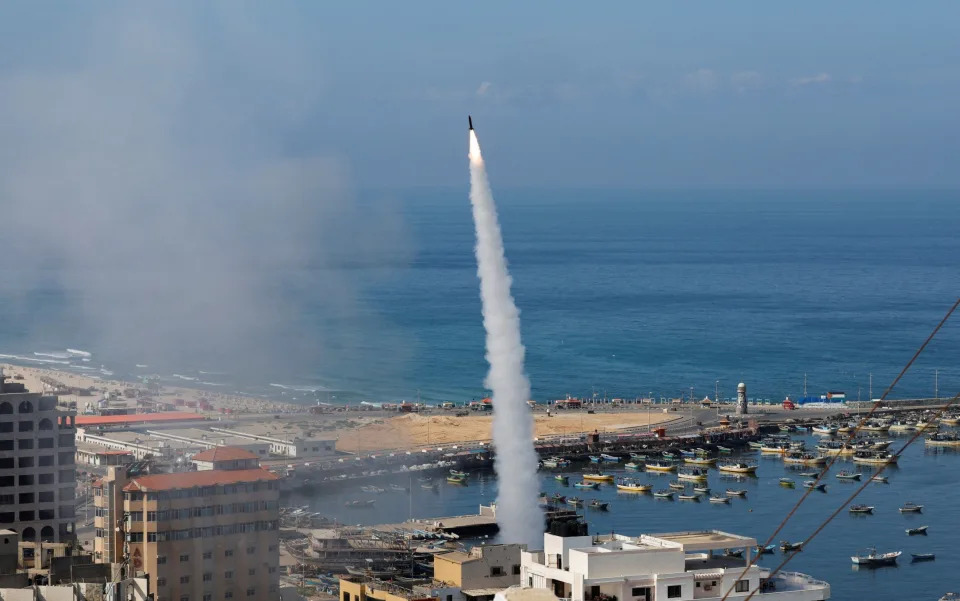
In May 2021, the Israeli police raided the Al Aqsa Mosque, a highly revered Muslim site in the heart of Jerusalem, which sparked an 11-day war between Israel and Hamas, killing more than 200 Palestinians and more than 10 Israelis.
In the same month, Palestinians were angered by the evictions of families from a Palestinian neighbourhood in Jerusalem, resulting in clashes that saw Hamas launch rockets at Israeli cities.
In April, violence broke out again at the mosque, the third holiest site in Islam, as Israeli police attempted to evacuate worshipers using stun grenades and rubber bullets. Worshippers threw objects back at the police and dozens of young people tried to barricade themselves inside. Tensions have simmered at the site since.
The West Bank has also experienced a surge of violence in recent months as Israel stepped up military raids in the territory. At least 12 Palestinians were killed in the Jenin refugee camp in July.
How did Israeli intelligence miss it?
The sudden attack has led to accusations of a massive failure by Israel’s much vaunted intelligence agencies, Shin Bet and Mossad, as well as the IDF.
Analysts have described the shock and scale of the assault as being on a par with the 9/11 terrorist attacks on the United States.
The attack took place a day after the 50th anniversary of the 1973 Arab-Israeli war, when Israel was also caught on the back foot by a coordinated offensive against it, led by Egypt and Syria.
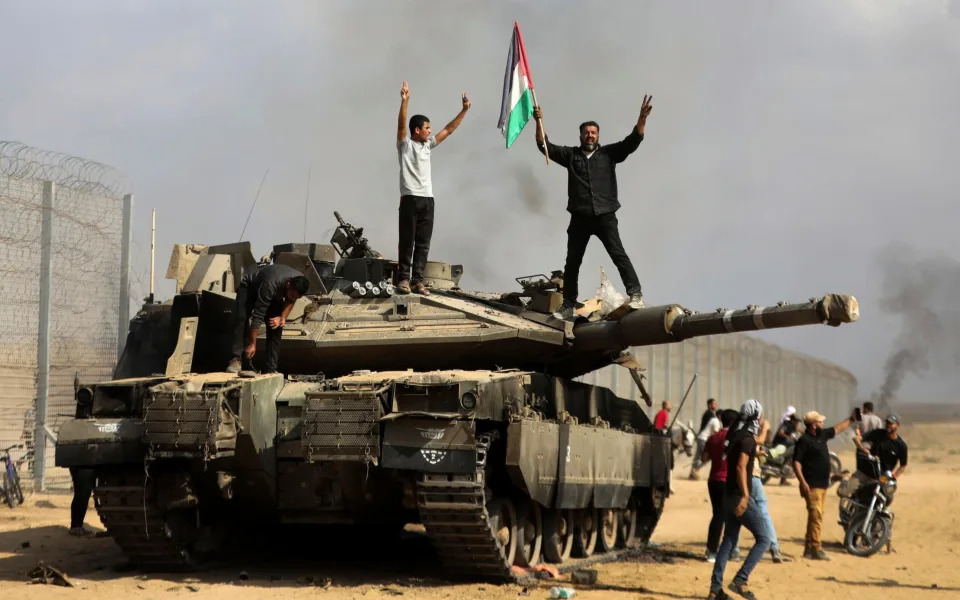
Beyond the immediate Israeli response to the crisis, its government and security agencies will face recriminations for months to come as to how one of the most well-resourced intelligence services in the Middle East had no apparent inkling about such an elaborately planned infiltration.
Questions will also be asked as to how Hamas militants broke through the barbed-wire topped fence separating Gaza from Israel, which is guarded by regular patrols and monitored by cameras and ground-motion sensors.
US officials have confirmed details of the onslaught, if known in advance, were not shared with Washington, and questions have also been raised as to why US intelligence agencies and other Arab states did not see it coming.
The US and Israel are now discussing enhanced intelligence sharing using information gathered from drones and satellites to respond to the lapse.
What has Israel’s response been?
Israel declared war against Hamas on Sunday after the deadly attack.
“Citizens of Israel, we are at war – not in an operation, not in rounds – at war,” Benjamin Netanyahu, the Israeli Prime Minister, told the nation in a video message.
On Monday, Yoav Gallant, Israel’s defence minister ordered a “complete siege” of Gaza, including the halt of supplies of electricity, food, water and fuel.
“I have given an order – Gaza will be under complete siege,” he said. “We are fighting barbarians and will respond accordingly.”
Israeli jets have been pounding the Gaza Strip – where some 2 million Palestinians live within 140 square miles – levelling four large towers and residential buildings in civilian neighbourhoods.

More than 550 people have been killed, according to Gaza’s health ministry, and the UN humanitarian relief agency reports some 123,538 have been displaced, with many taking shelter in schools.
Israel’s government has announced a call-up of military reservists and tank units have been sent to the south, fueling speculation that Israel is to launch a ground incursion into Gaza.
What does the future hold?
Mr Netanyahu has warned of “a long and difficult war” ahead as the country faces its most serious crisis in decades.
Israel was “going to change the Middle East” in its response to the weekend’s terrorist assault, he said on Monday.
“What Hamas will go through will be difficult and terrible,” Mr Netanyahu said.
In the coming days, Israel’s most immediate security challenge is to counter the threat of gunmen still roaming its towns and cities.
It must also try to secure the return of Israeli hostages being held in Gaza, who it is feared will be used as human shields or bargaining chips.
Qatari mediators have held urgent calls with Hamas officials to try to negotiate freedom for Israeli women and children in exchange for the release of 36 Palestinian women and children from Israel’s prisons, a source told Reuters.
Longer term, Israel could face battles on multiple fronts, but it is not yet clear how regional actors, including Hizbollah and Iran, may be drawn into the conflict.
Speaking at the start of the massacre on Saturday, Mohammed Deif, the shadowy Hamas commander and one of Israel’s most wanted terrorists, said the assault was only the start of the operation and called on Palestinians from east Jerusalem to northern Israel to join the fight.
The coming days and weeks will reveal whether they are willing to respond to his battle cry.
- Questions and Answers
- Opinion
- Story/Motivational/Inspiring
- Technology
- Art
- Causes
- Crafts
- Dance
- Drinks
- Film/Movie
- Fitness
- Food
- Giochi
- Gardening
- Health
- Home
- Literature
- Music
- Networking
- Altre informazioni
- Party
- Religion
- Shopping
- Sports
- Theater
- Wellness
- News
- Culture
- War machines and policy


